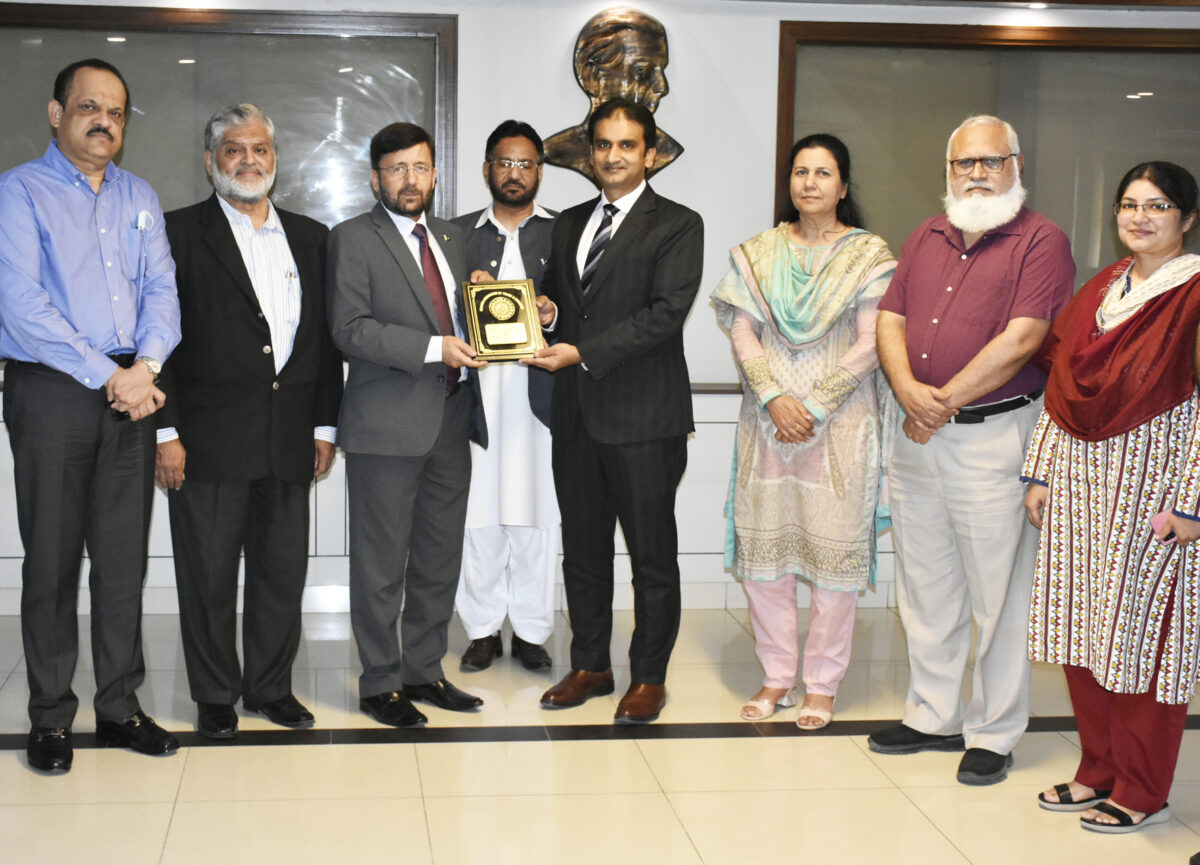Karachi: The Institute of Business Administration (IBA), Karachi hosted an inaugural lecture in collaboration with the Center for Middle Eastern Studies (CMES), University of California, Berkeley. The lecture titled ‘Zaban- i-Ghayr: Islam and the Work of the Humanities’ featured Asad Q. Ahmed, Magistretti Distinguished Professor of Middle Eastern Languages and Cultures and Director, CMES, UC Berkeley. Students, faculty, historians and Islamic scholars attended the enlightening lecture.
Executive Director, IBA Karachi, Dr. S Akbar Zaidi shed light on the significant collaboration between the
institutions, as earlier IBA Karachi and UC Berkeley signed an MoU to develop collaboration between faculty and students. The IBA will work closely with CMES and develop programs and linkages focusing on the various aspects of Islamic and Muslim societies, enabling a shared landscape for discourse.
Seher Ali Shah, Coordinator, Foreign Languages Program and Lecturer at IBA welcomed and introduced the distinguished speaker. Enumerating his contributions to the fields of humanities, Islamic history and languages, she invited Professor Ahmed to discuss the impact of humanities on academia and its role in shaping communities of discourse.


Professor Ahmed explored various aspects related to canon, translation, and educational policy, and reflected on the work of the humanities in academia and how certain indigenous discursive elements were subverted to serve modernity, creating a persistent conceptual contradiction in post-colonial societies.
The speaker opined that modernity has played a role in distancing us from our languages and traditions. Professor Ahmed talked about how individuals in the Global South could find cultural, political, and social empowerment through Islamic humanities.
Following the lecture, Dr. Azam Ali, Assistant Professor, School of Business Studies, IBA and Professor Ahmed,
engaged in a conversation in which the esteemed speaker emphasized on instilling enthusiasm for our own languages, culture and Islamic history in our students and youth. He further added that learning English was fine as it was a global language, but the significance of learning other languages cannot be undermined.
An engaging Q&A session ensued.
The inaugural lecture enabled a thought-provoking exploration of the dynamic relationship between Islam and the work of the humanities, showcasing IBA’s commitment to fostering intellectual dialogues and advancing knowledge.



















